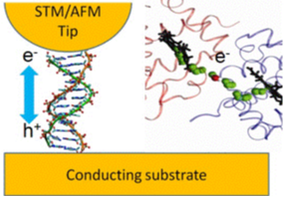Welcome to our research group webpage
We are part of Tata Institute of Fundamental Research, based on the shores of the Arabian sea

PI: Ravi Venkatramani
Associate Professor,
Department of Chemical Sciences, TIFR Room # 121 B-block
Homi Bhabha Road, Colaba Tel (Off/Group) +91-022-2278-2064/2055
Mumbai-400 005, Maharashtra, India email: [email protected]
Academic Profile
M.A. (Physics), 2001 University of Rochester, NY, USA
Ph.D (Physics), 2005, University of Rochester, NY, USA
Postdoc (Dept of Bioengineering), 2005-2007, University of Pennsylvania, Philadelphia, PA, USA
Postdoc (Dept of Chemistry), 2007-2012, Duke University, Durham, NC, USA
Associate Professor,
Department of Chemical Sciences, TIFR Room # 121 B-block
Homi Bhabha Road, Colaba Tel (Off/Group) +91-022-2278-2064/2055
Mumbai-400 005, Maharashtra, India email: [email protected]
Academic Profile
M.A. (Physics), 2001 University of Rochester, NY, USA
Ph.D (Physics), 2005, University of Rochester, NY, USA
Postdoc (Dept of Bioengineering), 2005-2007, University of Pennsylvania, Philadelphia, PA, USA
Postdoc (Dept of Chemistry), 2007-2012, Duke University, Durham, NC, USA
Research Overview

Molecular reactions and processes in the condensed phase take place in a multi-dimensional phase space involving large number of nuclear and electronic degrees of freedom. Yet, a central tenet in chemistry is that reaction rates and yields can be controlled and predicted from the knowledge of a few essential degrees of freedom or reaction coordinates and their dynamics. The goal of our theoretical and computational research program at TIFR is to identify effective reaction coordinates, dynamical descriptors, and pathways governing biomolecular function and electronic charge flow through molecules. Please click on the research tab or here to find out about our active projects.
Students in the program are exposed to an interdisciplinary research environment in computational chemistry, biophysics, and biochemistry, with the opportunity to master rigorous theoretical formalisms and state-of-the-art high performance computational tools. Computational methods include molecular modeling and simulations (coarse grained, atomistic, and hybrid quantum mechanics molecular mechanics) in conjunction with accelerated and non-equilibrium sampling strategies. Processes such as charge transport and energy flow in organic frameworks, as well as optical response of molecules, are described using the theory of open quantum systems within a reduced density matrix framework or Greens function based approaches. Close collaboration with experimental colleagues is a crucial component of our research program. Students are encouraged to develop an understanding of the latest experimental techniques associated with their research area with a view towards developing predictive algorithms and proposing novel experiments to probe emerging concepts.
Students in the program are exposed to an interdisciplinary research environment in computational chemistry, biophysics, and biochemistry, with the opportunity to master rigorous theoretical formalisms and state-of-the-art high performance computational tools. Computational methods include molecular modeling and simulations (coarse grained, atomistic, and hybrid quantum mechanics molecular mechanics) in conjunction with accelerated and non-equilibrium sampling strategies. Processes such as charge transport and energy flow in organic frameworks, as well as optical response of molecules, are described using the theory of open quantum systems within a reduced density matrix framework or Greens function based approaches. Close collaboration with experimental colleagues is a crucial component of our research program. Students are encouraged to develop an understanding of the latest experimental techniques associated with their research area with a view towards developing predictive algorithms and proposing novel experiments to probe emerging concepts.
*New* post-doctoral position available
Please click on the open positions tab or here to find out more.

